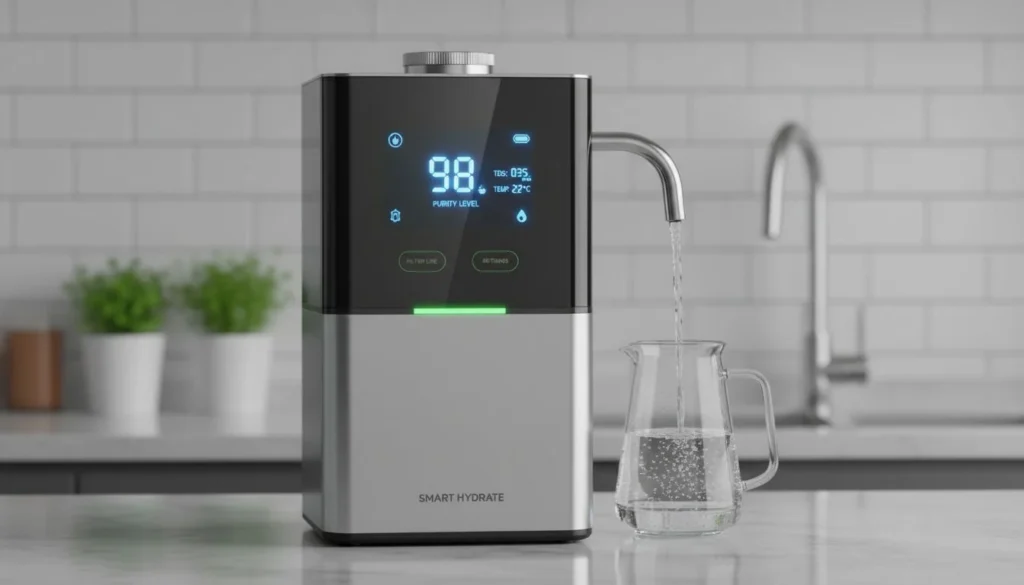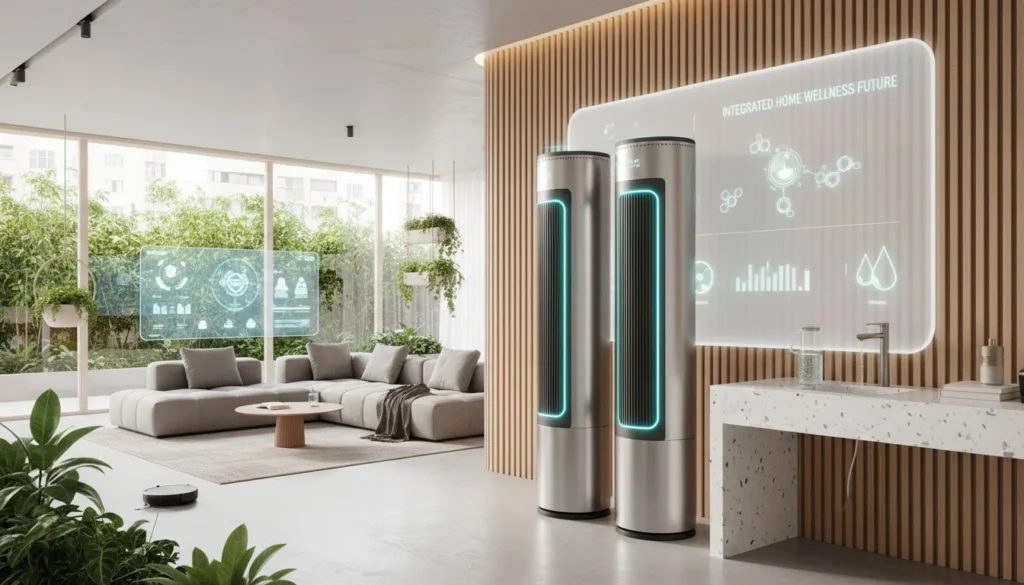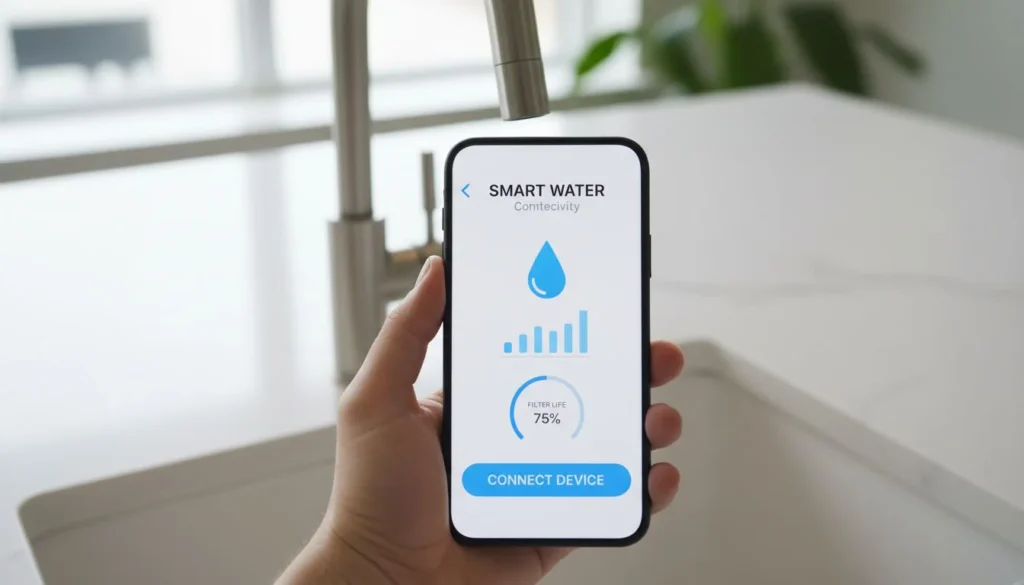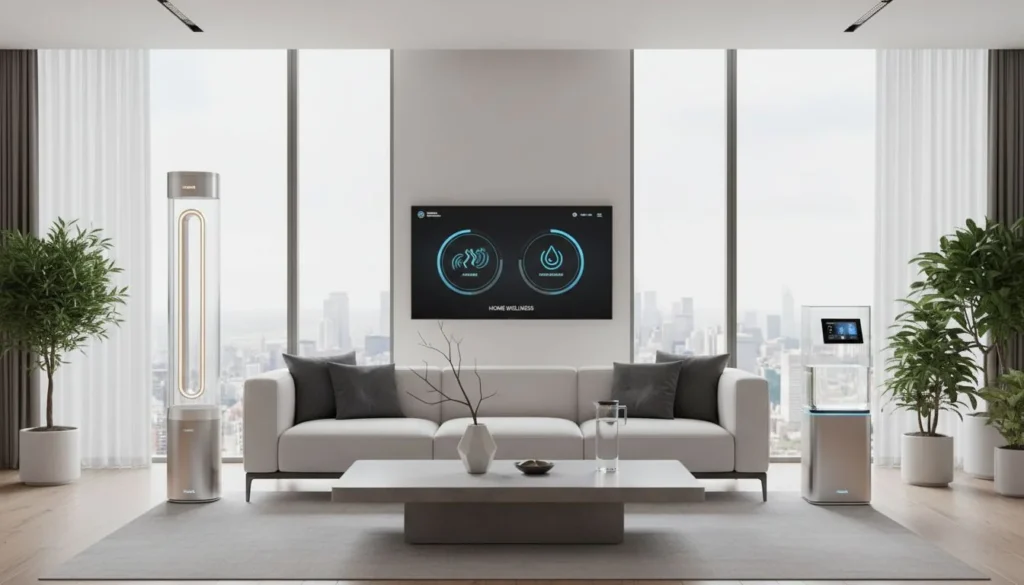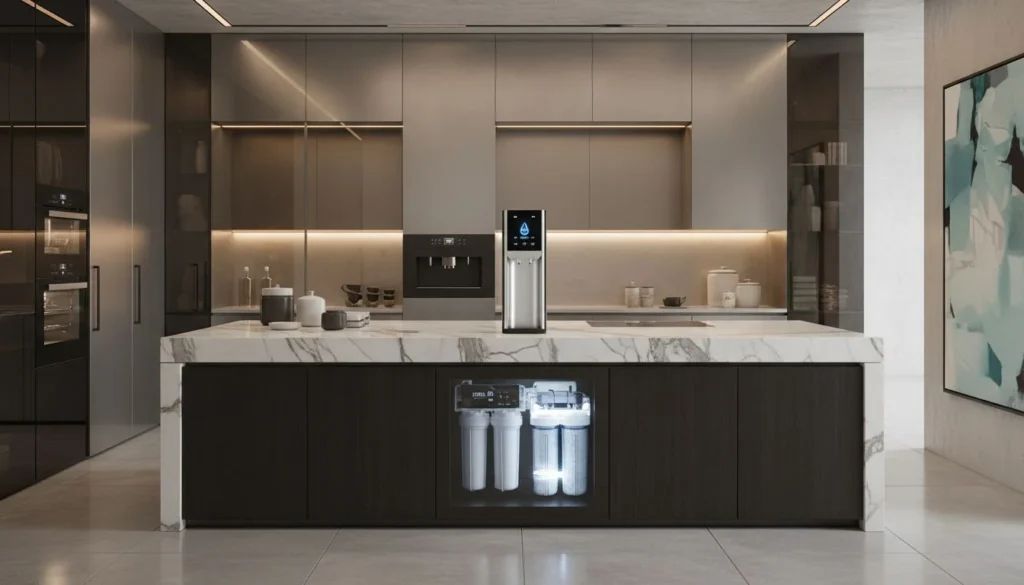HEPA-фильтры - популярный выбор в области очистки воздуха, используемый для эффективного улавливания частиц, находящихся в воздухе, и улучшения качества воздуха в различных средах. В последние годы их высокая эффективность в удалении пыли, аллергенов, бактерий и даже вирусов сделала их незаменимыми в воздухоочистителях для домов, школ, больниц и офисов.
Что такое фильтр HEPA?
HEPA (высокоэффективный воздух с частицами) Фильтры удаляют загрязнения из воздуха, задерживая 99,97% частиц размером до 0,3 микрона.1включая пыль, пыльцу, перхоть домашних животных, а также некоторые бактерии и вирусы. Благодаря своей эффективности они идеально подходят для помещений, где необходим чистый воздух. Например, HEPA-фильтры особенно эффективны для уменьшения количества аллергенов, что может облегчить проблемы с дыханием у чувствительных людей (источник).
Понимание принципов работы фильтров HEPA, их преимуществ и ограничений поможет пользователям выбрать правильный воздухоочиститель. Продолжайте читать, чтобы узнать больше о фильтрах HEPA, других технологиях фильтрации и их сравнении.
Да, фильтры HEPA подходят для медицинских учреждений.Правда
Благодаря своей высокой эффективности фильтры HEPA часто используются в медицинских учреждениях для обеспечения чистоты воздуха.
Почему фильтры HEPA эффективны в очистителях воздуха?
Фильтры HEPA высокоэффективны при очистке воздуха, особенно в помещениях, где чистота имеет первостепенное значение, таких как медицинские учреждения2. Плотная структура волокон в фильтрах HEPA задерживает широкий спектр частиц, обеспечивая очищенный воздух, в котором меньше аллергенов, пыли и других загрязняющих веществ.
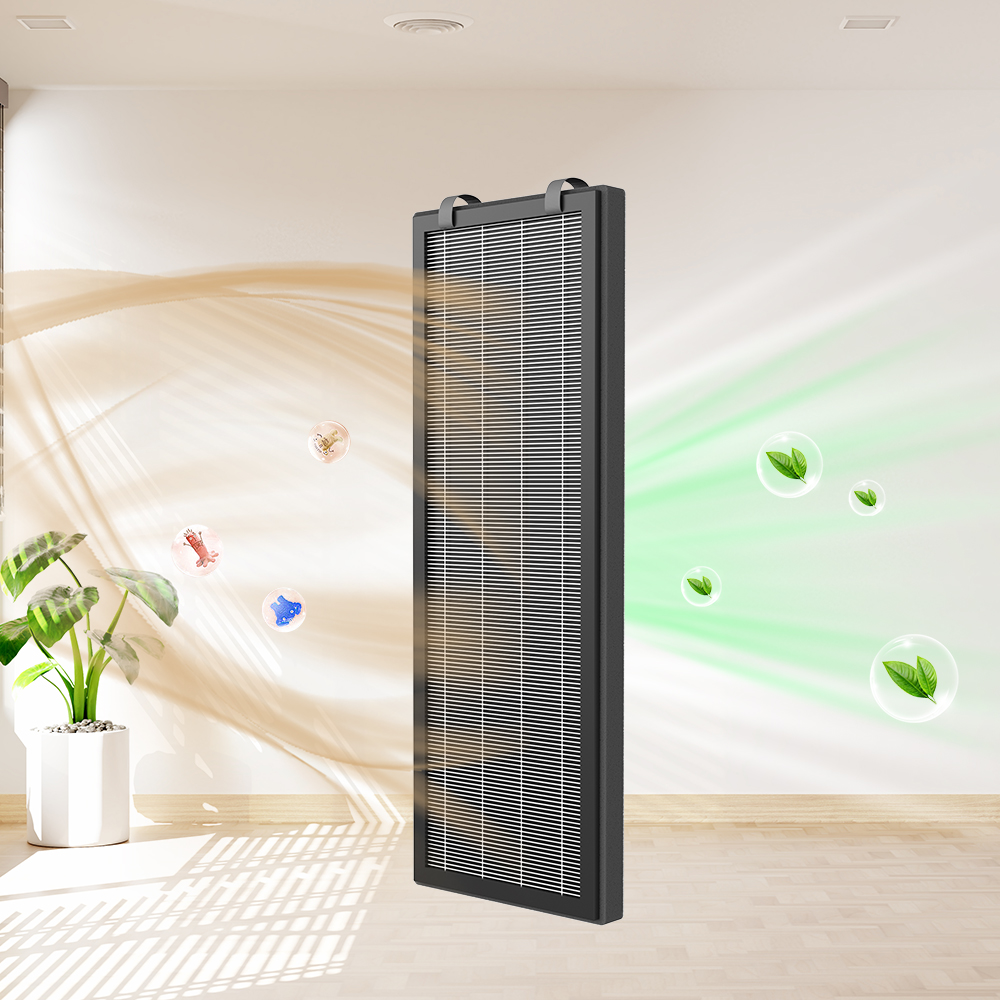
Как работают фильтры HEPA
HEPA-фильтры работают, пропуская воздух через мелкую сетку, которая задерживает вредные частицы, в отличие от обычных фильтров, которые могут пропускать более мелкие загрязняющие вещества.источник). Этот фильтр эффективно удаляет 99,97% частиц, находящихся в воздухе, задерживает аллергены и раздражители, обеспечивая чистый, пригодный для дыхания воздух. В воздухоочистителях фильтры HEPA работают непрерывно, поддерживая высокое качество воздуха в течение всего дня.
Фильтры HEPA по сравнению с другими технологиями фильтрации
По сравнению с другими методами очистки воздуха, такими как генераторы ионов, плазменные фильтры или ультрафиолетовое излучениеФильтры HEPA - это более безопасный и надежный вариант для здоровья человека. Ионизация и плазменные технологии создают ионы или реактивные частицы, которые могут привести к образование озона3-раздражитель дыхательных путей (источник). Однако фильтры HEPA физически задерживают частицы, не выделяя никаких побочных продуктов, что делает их предпочтительным выбором для поддержания качества воздуха в помещении.
Фильтры HEPA могут задерживать такие газы, как летучие органические соединения.Ложь
Фильтры HEPA предназначены для улавливания частиц, а не газов или запахов; для улавливания летучих органических соединений необходим фильтр с активированным углем.
Сравнение технологий фильтрации
Чтобы разобраться в различиях, приводим сравнительную таблицу различных технологий фильтрации и их характеристик:
| Технология фильтрации | Эффективность | Побочные продукты | Общие приложения | Ключевые преимущества | Ограничения |
|---|---|---|---|---|---|
| Фильтр HEPA | Высокий | Нет | Дома, больницы, | Удаляет 99,97% частиц | Не удаляет газы, такие как летучие органические соединения4 |
| офисы | до 0,3 микрон | ||||
| Активированный уголь | Умеренный | Нет | Очистители воздуха, HVAC | Адсорбирует летучие органические соединения, запахи | Менее эффективен для твердых частиц |
| Генератор ионов | Умеренный | Озон | Промышленность, | Уменьшает количество аллергенов и частиц | Озон может раздражать дыхательную систему |
| очистители воздуха | |||||
| Ультрафиолетовое излучение | Переменная | Нет | Больницы, лаборатории, | Уничтожает бактерии и вирусы | Ограниченная эффективность для частиц |
| очистители воздуха | |||||
| Плазменная технология | Высокий | Озон | Промышленность | Эффективна для стерилизации | Производит реактивные частицы |
Идеальное применение фильтров HEPA
Фильтры HEPA широко используются в домах, больницах, офисах и любых других помещениях, где чистота воздуха является приоритетом. Они особенно полезны для облегчения аллергии и проблем с дыханием5. Улавливая мелкие частицы и аллергены, фильтры HEPA создают более здоровую обстановку в помещении. В медицинских учреждениях фильтры HEPA обеспечивают очистку воздуха от патогенов, сводя к минимуму риск заражения.
Что означает HEPA?
HEPA, или Высокоэффективный воздух с твердыми частицамиЭто стандарт эффективности фильтрации воздуха. Фильтры HEPA должны удалять 99,97% частиц размером до 0,3 микрона, что соответствует размеру многих загрязняющих воздух веществ. Такая высокая эффективность помогает уменьшить количество аллергенов, бактерий и загрязняющих веществ, способствуя созданию более здоровой окружающей среды.источник).
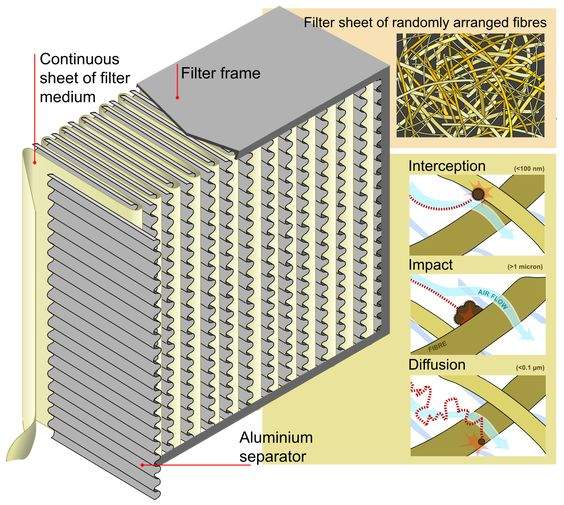
Стандартизированное качество
Стандарт HEPA, установленный регулирующими органами, гарантирует, что фильтры соответствуют необходимой эффективности для очистки воздуха. Этот стандарт делает фильтры HEPA надежным выбором для помещений, где требуется постоянная и качественная фильтрация воздуха.
Преимущества использования фильтров HEPA
Фильтры HEPA обладают множеством преимуществ, помимо удаления аллергенов. Их тонкая фильтрация уменьшает проблемы с дыханием и создает более чистую и безопасную среду, особенно в помещениях с уязвимыми группами населения, такими как дети, пожилые люди или люди с ослабленным здоровьем.6.
Фильтры HEPA значительно улучшают качество воздуха.Правда
Фильтры HEPA задерживают микроскопические частицы, что делает их очень эффективными для улучшения качества воздуха в помещении.
Возникновение и развитие технологии HEPA
Технология HEPA была первоначально разработана компанией Американские военные во время Второй мировой войны для защиты солдат от радиоактивных частиц в воздухе7. С тех пор HEPA-фильтры эволюционировали и стали использоваться в различных отраслях промышленности, включая здравоохранение, коммерческие помещения и жилые дома.
Достижения в технологии HEPA-носителей
Современные фильтры HEPA теперь оснащены передовые медиатехнологии что позволяет увеличить поток воздуха при низком сопротивлении8. Это усовершенствование означает, что воздухоочистители, оснащенные фильтрами HEPA, могут эффективно очищать большие объемы воздуха без высоких скоростей вращения вентилятора, что снижает уровень шума и энергопотребления. Благодаря этим усовершенствованиям фильтры HEPA стали еще более эффективными, а чистый воздух стал доступен большему количеству людей.
Почему HEPA-фильтрам нужны угольные фильтры?
Хотя фильтры HEPA отлично справляются с улавливанием частиц, они не могут удалять запахи или газы, такие как летучие органические соединения (ЛОС).9. Для решения этой проблемы многие воздухоочистители используют HEPA-фильтры в паре с угольные фильтрыОни адсорбируют летучие органические соединения и запахи, что делает их идеальной комбинацией для комплексного управления качеством воздуха.
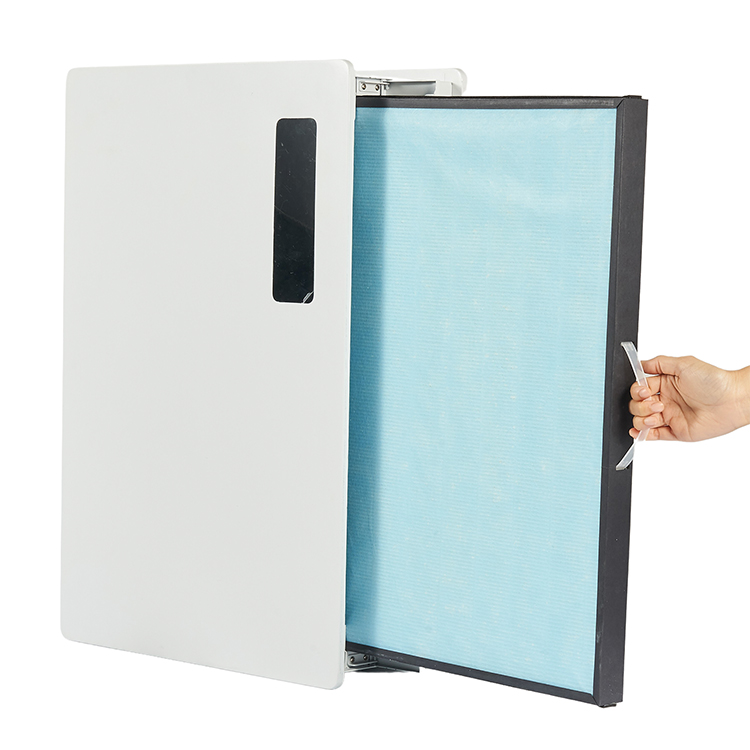
Когда следует использовать как HEPA, так и угольные фильтры
В условиях, когда воздух загрязнен газообразными веществами (например, красками, чистящими средствами или курением), сочетание фильтров HEPA и угольных фильтров обеспечивает более полную очистку воздуха. Такое сочетание обеспечивает удаление как частиц, так и вредных газов, создавая более свежую атмосферу.
Преимущества двойной фильтрации
Использование HEPA с угольной фильтрацией позволяет эффективно снизить уровень распространенных аллергенов и запахов, создавая свежую и чистую атмосферу. Такой двойной подход особенно полезен в таких помещениях, как школы, офисы и дома, где могут присутствовать летучие органические соединения.
HEPA- и угольные фильтры обеспечивают комплексную очистку воздуха.Правда
Вместе эти фильтры улавливают частицы и адсорбируют летучие органические соединения и запахи, обеспечивая более чистый воздух.
Преимущества HEPA-фильтров в очистителях воздуха
Фильтры HEPA необходимы для качественной очистки воздуха, уменьшения загрязнений и улучшения качества воздуха в любой среде.
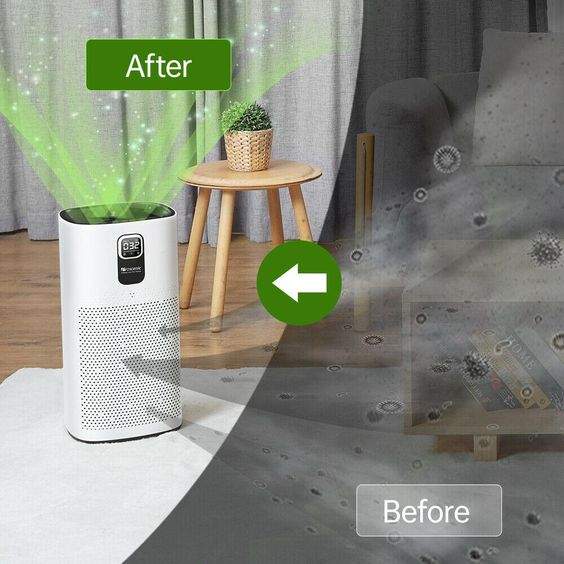
Повышение качества воздуха с помощью фильтров HEPA
Фильтры HEPA улавливают частицы, вызывающие проблемы с дыханием, что очень полезно для семей с домашними животными или расположенных в городских районах с высоким уровнем загрязнения. Фильтры уменьшают количество аллергенов, пыли и перхоти, обеспечивая более здоровую атмосферу.
Не требует особого ухода, высокая эффективность
Фильтры HEPA долговечны и обычно требуют замены лишь раз в 6-12 месяцев, в зависимости от условий эксплуатации. Длительный срок службы и низкая потребность в обслуживании делают их экономически эффективным решением для долгосрочного управления качеством воздуха10.
Фильтры HEPA не требуют особого ухода.Правда
Фильтры HEPA требуют редкой замены, что обеспечивает удобство и надежность.
Заключение
Фильтры HEPA - это проверенное и высокоэффективное решение для улучшения качества воздуха в помещении за счет улавливания мелких частиц, что обеспечивает более чистую и здоровую среду. Первоначально разработанные военными, HEPA-фильтры продолжают оставаться предпочтительным выбором для очистки воздуха в домах, на рабочих местах и в медицинских учреждениях благодаря своей безопасности, надежности и постоянному совершенствованию.
-
Эффективность фильтрации HEPA: Фильтры HEPA удаляют 99,97% частиц размером 0,3 микрона, что делает их идеальными для удаления мелких частиц и аллергенов. ↩
-
Использование HEPA-фильтров в медицине: Фильтры HEPA широко используются в медицинских учреждениях для обеспечения чистоты воздуха от патогенов и снижения уровня загрязнения. ↩
-
Риски ионизационной фильтрации: Ионизационные и плазменные технологии могут выделять озон, который может раздражать дыхательную систему. ↩
-
Фильтрация HEPA и VOC: В то время как HEPA эффективен для частиц, для поглощения летучих органических соединений требуется фильтр из активированного угля. ↩
-
HEPA для избавления от аллергии: Фильтры HEPA эффективно снижают содержание аллергенов в воздухе, улучшая здоровье чувствительных людей. ↩
-
Преимущества фильтров HEPA для здоровья: Технология HEPA помогает уменьшить количество аллергенов, проблем с дыханием и общее загрязнение воздуха в помещении. ↩
-
Военные истоки HEPA: Разработанная американскими военными, технология HEPA первоначально использовалась для фильтрации радиоактивных частиц. ↩
-
Передовая технология HEPA Media: Инновации в фильтрующих материалах HEPA позволяют увеличить поток воздуха и снизить сопротивление в воздухоочистителях. ↩
-
Использование HEPA с угольными фильтрами: Сочетание HEPA с активированным углем улучшает качество воздуха, удаляя частицы и летучие органические соединения. ↩
-
Обслуживание фильтра HEPA: Фильтры HEPA имеют длительный срок службы и требуют лишь периодической замены, что делает их экономически эффективными при длительном использовании. ↩


